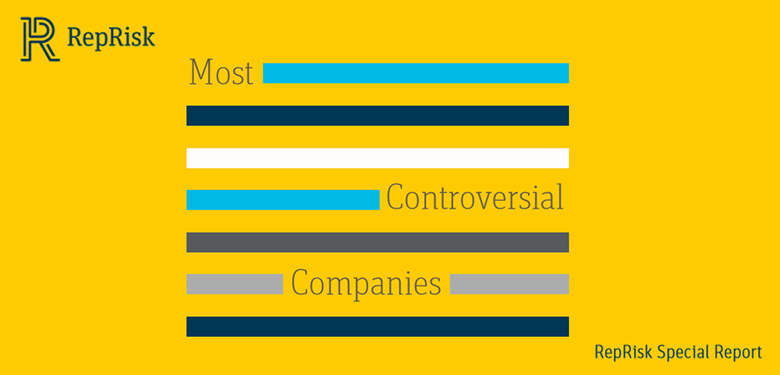Risk management consultancy RepRisk has released a list of last year’s worst environmental social, and governance failures at companies around the world, with several incidents in Asia highlighted. The Most Controversial Companies (MCC) Report highlights the reputational damage and bottom-line impact from ten enormous environmental, social and governance (ESG) failures worldwide and the effect on business networks caused by these incidents. This year, the top four spots concerned failures at companies based in Asia.
The MCC Report shows how major corporations from different sectors had to mitigate reputational and financial impacts resulting from inadequate management of ESG risks. It highlights the global dynamics of such ESG incidents and the effects they had along business networks. The Report shows how a company can suffer severe reputational damage, or face mounting legal and financial challenges due to ESG and business conduct incidents.
The wide spectrum of ESG issues highlighted in the report includes money laundering in the banking sector, scams perpetrated on the public, several product recalls, engineering mishaps due to gross negligence, general widespread corruption, and, unfortunately in the instance of Asia, the considerable loss of life – with this year’s list topped by the deadly Lion Air Flight JT 610 in Indonesia.
Last October, the Lion Air flight out of Jakarta crashed shortly after take-off, killing all 189 people on board, in what was the second deadliest crash in Indonesian aviation history and the first major international incident involving Boeing’s 737 MAX model. Since the crash, Boeing has been sued by relatives of one of the victims, while Boeing has in turn blamed Lion Air for poor maintenance standards.
In Laos, three months earlier, an auxiliary dam of the Xe-Pian Xe-Namnoy Power Hydropower Project on the Mekong River system collapsed and swept hundreds of people to their deaths, while displacing many thousands more. Insufficient action on a known fault is alleged as the triggering cause, while the government has pointed to poor construction and inadequate risk assessment. Multiple parties have been blamed for the incident in addition to operator Xe-Pian Xe-Namnoy Power, including dam partners Korea Western Power, Laos State Holding Enterprise and SK Holdings subsidiary SK Engineering & Construction.
In India, a US$45 million fraud perpetuated by several jewelers and employees at Punjab National Bank – India’s largest ever bank fraud – brought attention to the industry as a whole and an unwelcome spotlight on the jewelry trade.
The admission of data tampering by Kobe Steel, which ranked number two in the report, also shows how a company’s actions can have a ripple effect on the overall reputation of the entire industry, as shown by the subsequent admission by other Japanese manufacturers to similar lapses in their operations.
In China, the bribery and forgery case of Changsheng Bio-technology was highlighted where the company had been producing ineffective vaccines, for, among other potential ailments, rabies.
The report can be found at:
https://www.reprisk.com/content/5-publications/1-special-reports/53-most-controversial-companies-of-2017/mcc-2017.pdf
